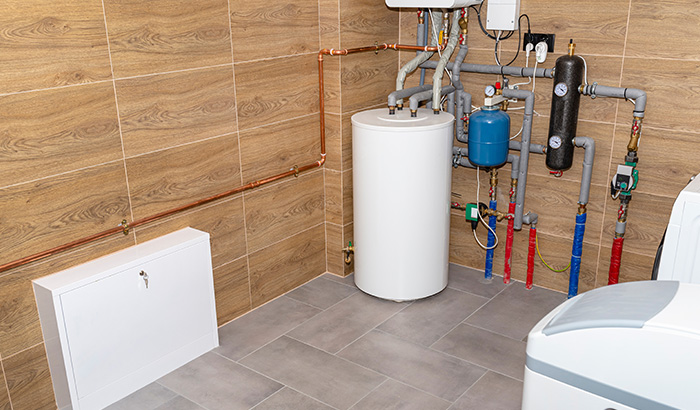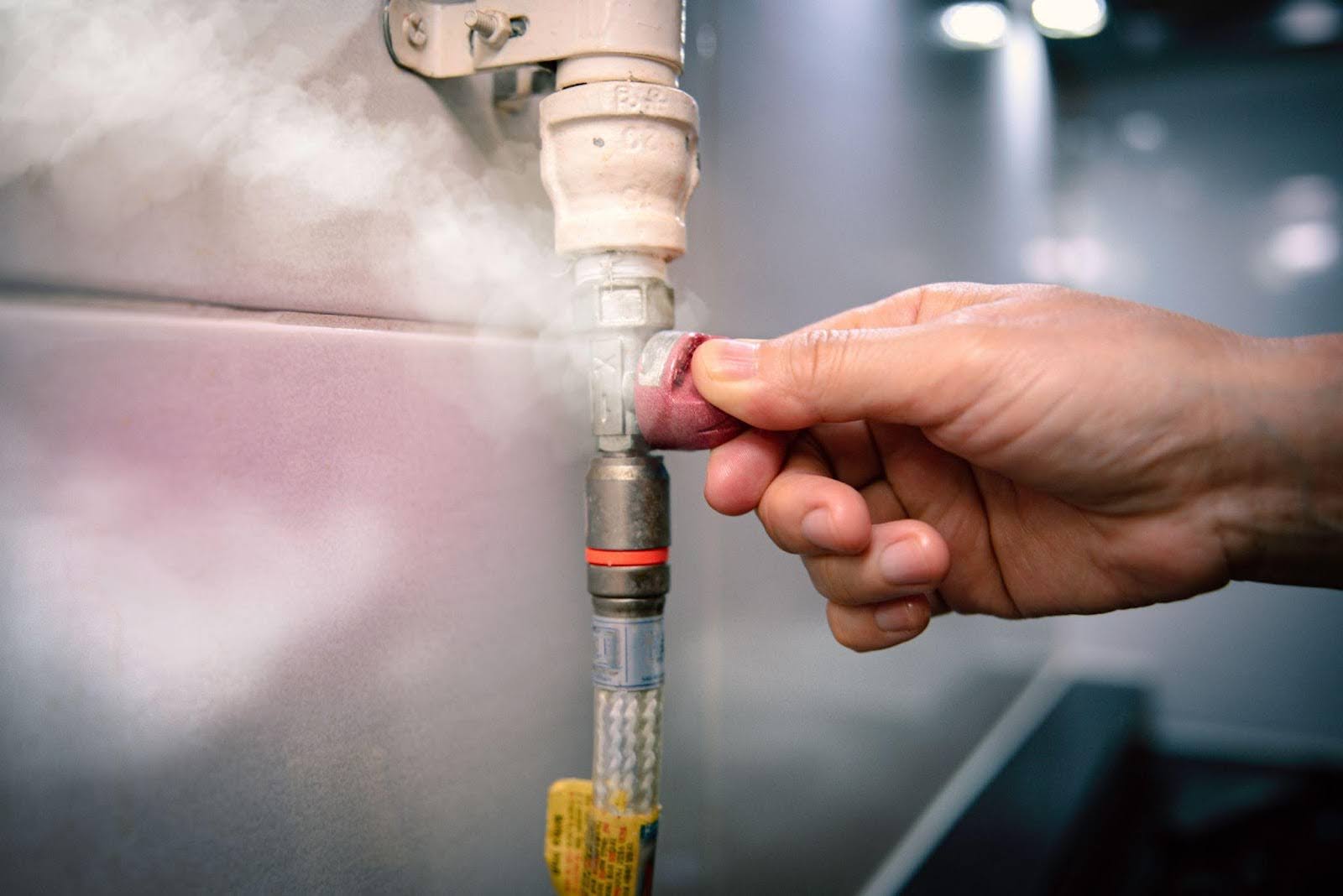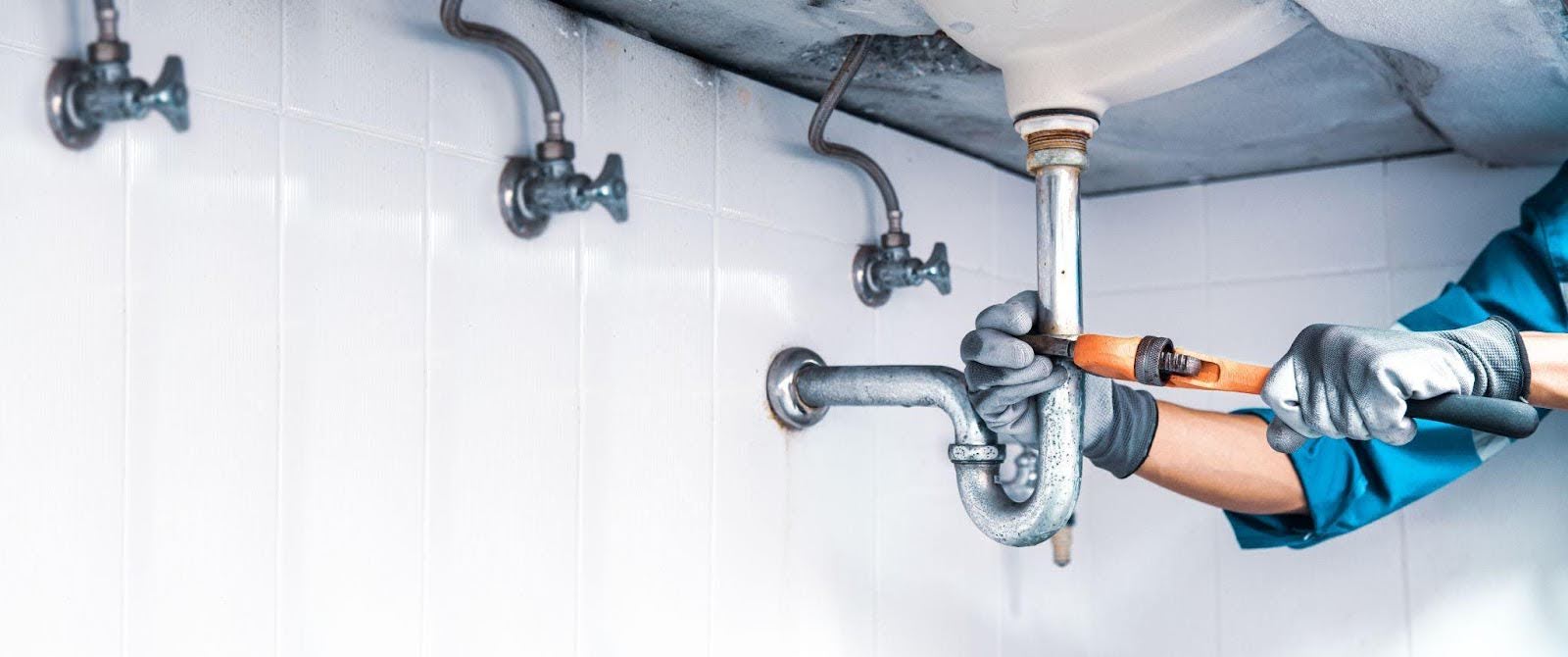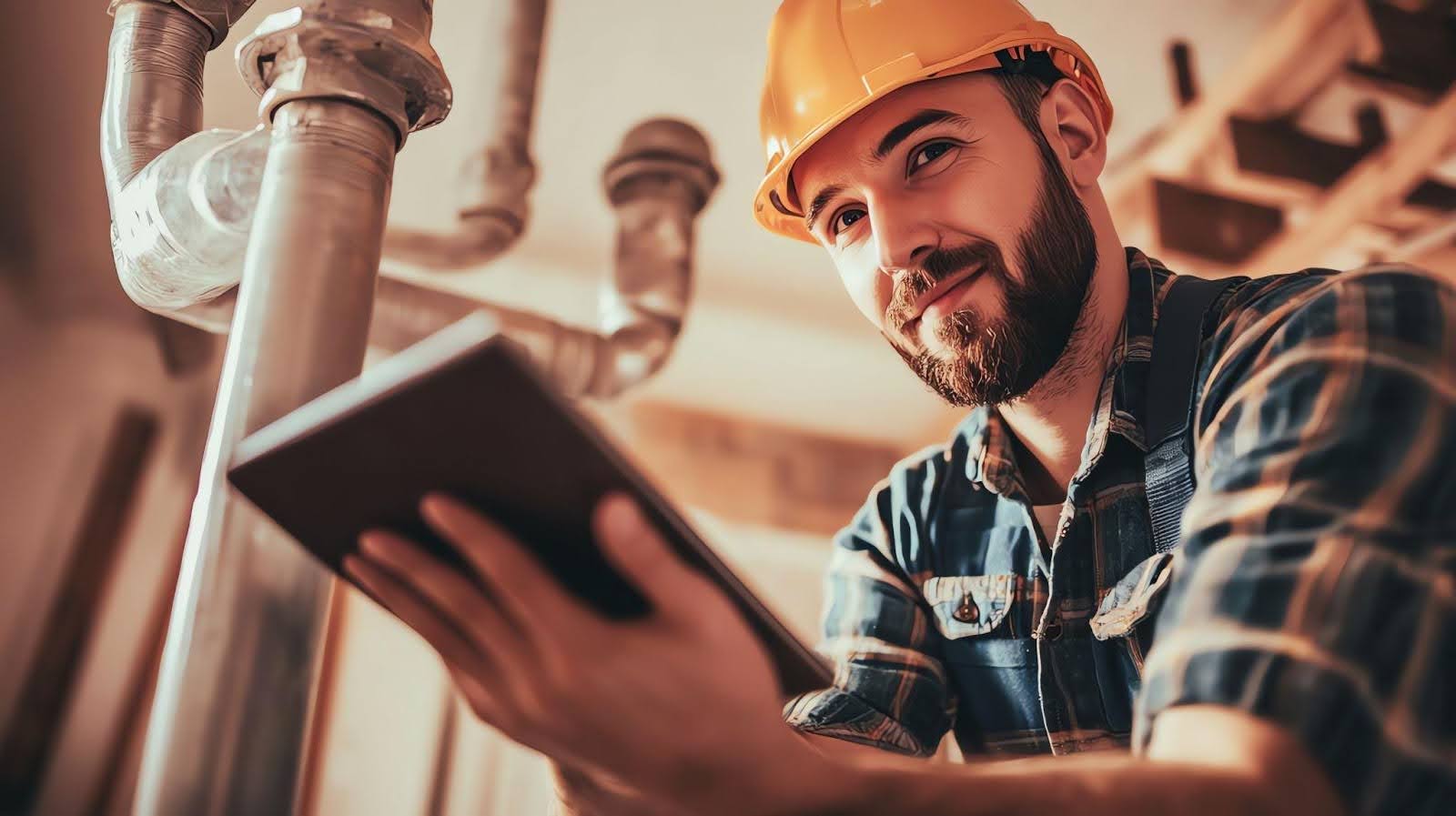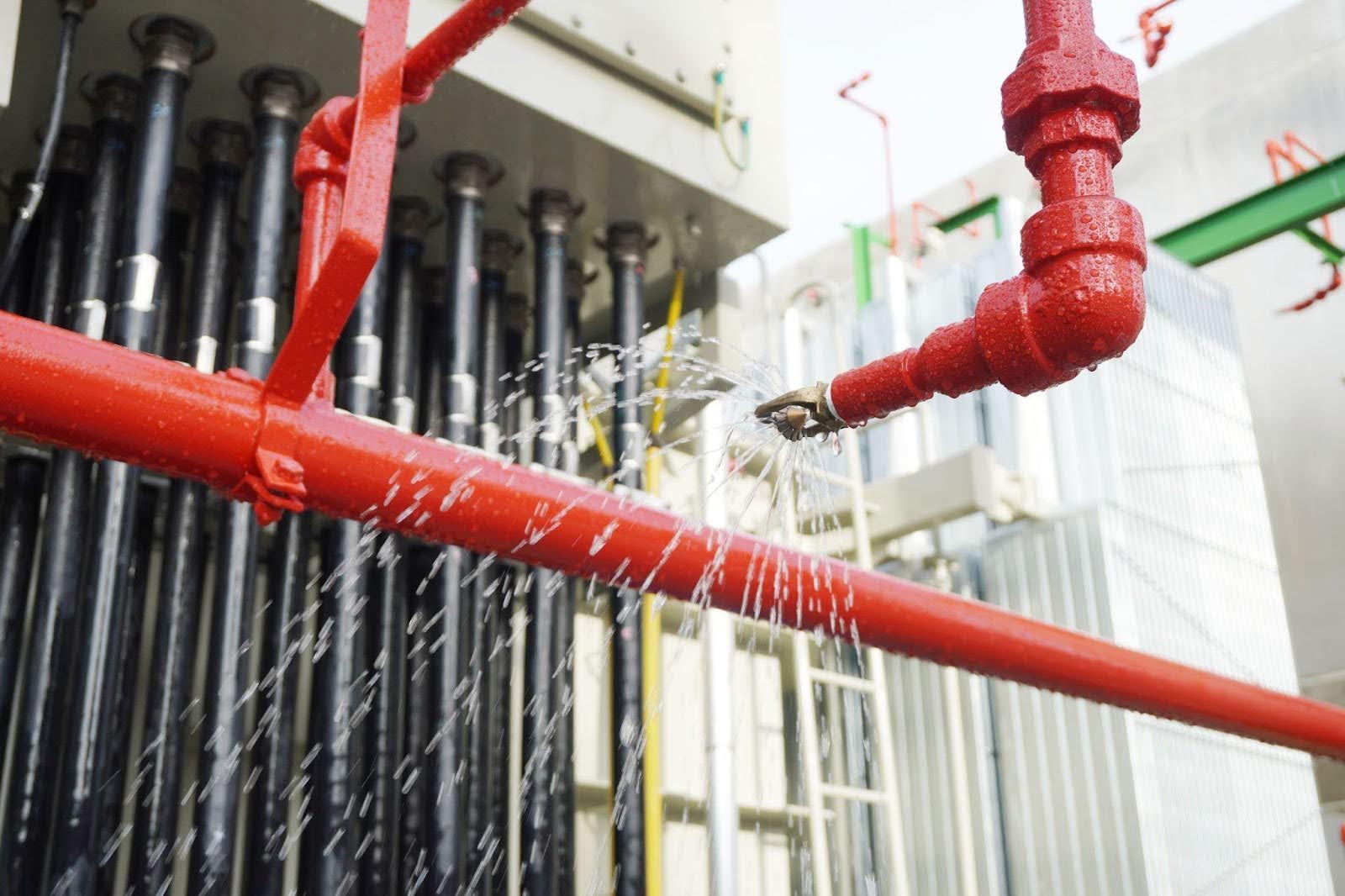Are you considering a DIY gas line installation? It’s essential to be well-prepared and well-informed before taking on this task. Gas line installations are intricate procedures that require careful attention to detail and a strong commitment to safety.
Safety and proper installation are paramount when working with gas lines due to risks like gas leaks, fire hazards, and carbon monoxide exposure. Understanding complexities and adhering to regulations reduces accidents and ensures household safety.
This blog aims to offer a comprehensive overview of DIY gas line installation considerations. It covers personal skills, regulations, safety equipment, and alternatives, helping you make an informed choice that balances your capabilities and commitment to safety.
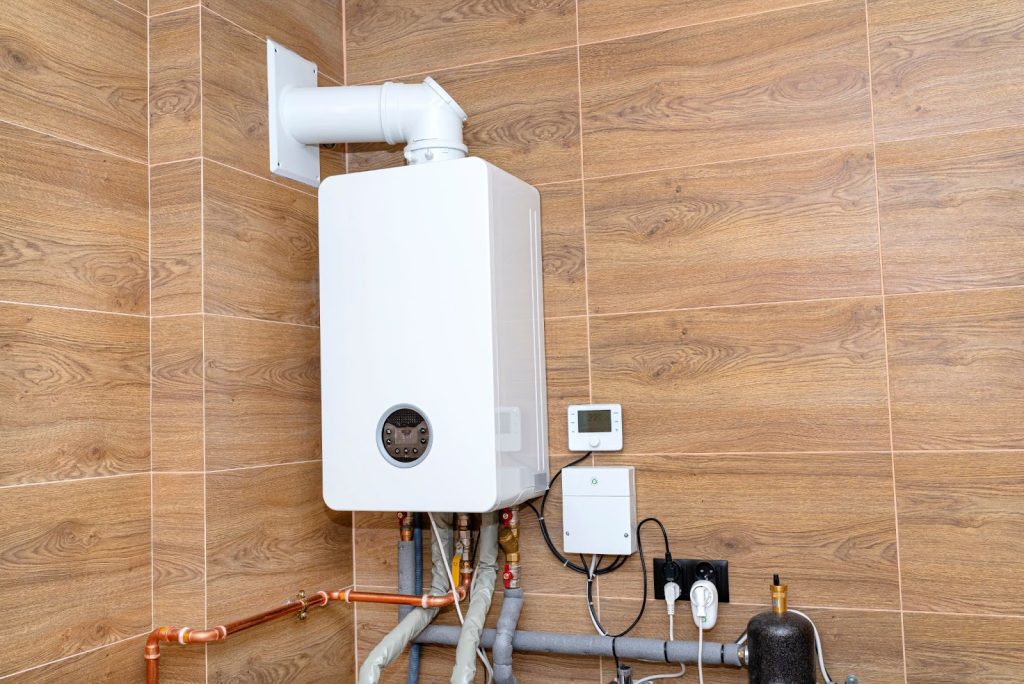
Understanding Gas Line Installation
Gas line installations encompass a range of components that work in tandem to ensure a safe and efficient gas supply to your appliances. These components include pipes, fittings, valves, and connectors. Each element plays a pivotal role in maintaining the integrity of the gas system, and their proper installation is crucial to prevent leaks and potential hazards.
Components Involved:
- Pipes: Pipes serve as the conduit through which gas flows from its source to your appliances. They come in various materials, such as copper, steel, and flexible tubing, each with specific advantages and considerations.
- Fittings: Fittings are used to connect and secure pipes at different angles and junctions. They maintain the gas line’s structural integrity while allowing routing flexibility.
- Valves: Valves act as control points, regulating the gas flow and allowing you to shut off the gas supply to specific sections if needed. Main shutoff, branch, and appliance-specific valves all contribute to efficient gas management.
- Connectors: Connectors bridge the gap between gas pipes and appliances. They ensure a secure and leak-free connection, preventing potential gas escape.
Safety Considerations
Installing gas lines requires a profound understanding of safety protocols due to the inherent risks involved. Gas leaks can lead to explosions or fires, while carbon monoxide exposure poses severe health hazards.
Hence, meticulous attention to safety guidelines and adherence to local regulations is critical. Employing leak detection tools, ensuring proper ventilation, and investing in carbon monoxide detectors are essential steps to safeguard your household.
Repairs vs. Installations
It’s important to differentiate between minor gas line repairs and complex installations. Minor repairs, such as fixing small leaks or replacing a valve, might be manageable for individuals with moderate DIY skills.
However, complex installations, like extending gas lines for new appliances or constructing an entirely new line, demand a higher level of expertise due to the intricate planning, proper sizing, and precise connection requirements.
The Importance of Training and Knowledge
Proficiency in gas line installation comes with a commitment to learning and training. Without the requisite knowledge of pipe sizing, gas flow rates, pressure regulations, and connection methods, you risk compromising the safety and functionality of your gas system.
If you’re considering a DIY gas line installation, investing time in research, watching instructional videos, and consulting experts can significantly enhance your understanding and confidence.
Factors to Consider Before DIY Gas Line Installation
Adhering to Local Regulations and Permits
- Research Local Building Codes and Regulations
Before embarking on any gas line installation, acquaint yourself with the local building codes and regulations governing such projects. Different regions have distinct requirements to ensure the safety of gas systems. These codes cover pipe materials, sizing, venting, and shutoff valve placements.
- Importance of Obtaining Necessary Permits
In many jurisdictions, installing a gas line necessitates obtaining the appropriate permits. These permits are granted after thoroughly reviewing your proposed installation, and confirming that it aligns with the established safety standards. Skipping this step can lead to fines, project delays, or even having to redo the work to meet the required standards.
Evaluating Personal Skills and Experience
- Assess Your Plumbing and DIY Skills
An honest assessment of your plumbing and DIY skills is vital in determining if you’re equipped to install a gas line. If you have a history of completing plumbing projects or possess a solid foundation in DIY work, you might be better prepared. However, if you’re relatively new to DIY tasks or lack confidence in your skills, enlisting professional help is likely a wiser decision.
- Consider Your Familiarity with Gas Line Systems
Understanding gas line systems is a significant advantage when attempting DIY installation. Familiarity with the basics of gas flow, connections, and safety measures can significantly reduce the risk of errors. If you lack experience in gas systems, taking the time to educate yourself on these intricacies is crucial before undertaking an installation.
Prioritizing Safety Precautions and Equipment
- Required Safety Equipment
Installing a gas line inherently involves risks, emphasizing the need for proper safety equipment. Donning safety gloves, goggles, and protective clothing shields you from potential accidents during the installation process. These simple yet effective measures contribute to a secure working environment.
- Emphasizing the Need for Leak Detection Tools
Gas leaks can have catastrophic consequences. As a precaution, investing in reliable leak detection tools is paramount. Gas leak detectors can swiftly identify even minute gas escapes, allowing you to rectify the issue promptly and prevent potential hazards.
Securing the Right Tools and Materials
- Essential Tools and Materials Needed for Installation
Successfully installing a gas line requires various tools and materials, including pipe cutters, wrenches, pipe fittings, and appropriate pipes. Creating a checklist of these essentials ensures you’re adequately equipped to carry out the installation without interruptions.
- Addressing Potential Costs and Accessibility of Tools
Evaluate the cost of acquiring necessary tools and materials against the potential savings from a DIY installation. Additionally, consider the accessibility of specialized tools. Borrowing or renting tools you may not use frequently can be a more economical alternative.
Gauging Time and Complexity
- Evaluating Time Required for a Successful Installation
Gas line installations demand meticulous planning and execution, which can be time-consuming. Consider the time commitment required for researching, planning, and carrying out the installation. Rushing through the process can lead to mistakes and compromised safety.
- Weighing the Complexity of the Installation Process
Complex installations may involve intricate pipe routing, connections, and adherence to safety protocols. Assess whether you’re prepared to tackle the challenges posed by the specific installation you have in mind. If you’re uncertain about certain aspects, seeking professional assistance might be a prudent choice.
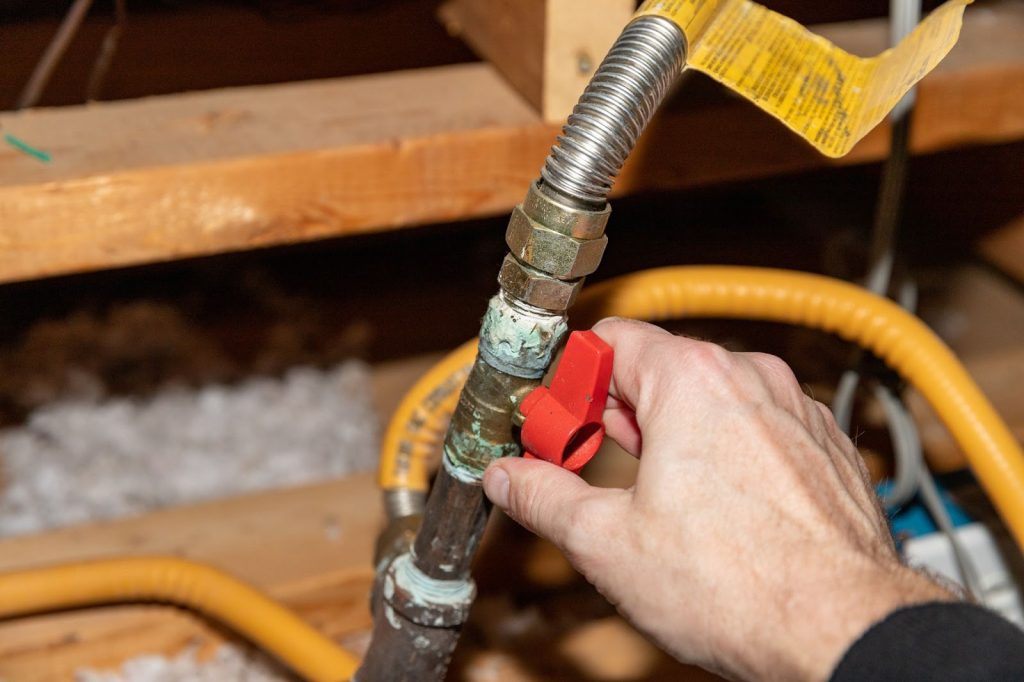
Benefits and Drawbacks of DIY Gas Line Installation
Recognizing the Benefits
- Potential Cost Savings
One of the main reasons individuals opt for DIY gas line installations is the potential for cost savings. By eliminating labor costs associated with hiring a professional, you can significantly reduce the overall expenses of the project. However, it’s crucial to weigh these potential savings against the costs of necessary tools, materials, and potential risks involved.
- Sense of Accomplishment
Completing a gas line installation on your own can be incredibly rewarding. The sense of accomplishment that comes from successfully managing a complex project in your home is undeniable. It can boost your confidence in tackling other DIY projects and provide a valuable learning experience.
- Increased Understanding of Your Home’s Infrastructure
Undertaking a gas line installation allows you to intimately familiarize yourself with your home’s infrastructure. This hands-on experience can deepen your understanding of how gas systems work, allowing you to troubleshoot minor issues more effectively and communicate more knowledgeably with professionals if you seek their assistance.
Acknowledging the Drawbacks
- Safety Risks and Hazards
The associated safety risks may be the most critical drawback of a DIY gas line installation. Gas leaks, fires, and potential carbon monoxide exposure are real dangers. Without proper training and experience, you might inadvertently create hazardous conditions that pose significant threats to your safety and that of your household.
- Potential Legal Consequences for Code Violations
Gas line installations are subject to stringent building codes and regulations. Failure to adhere to these regulations can lead to legal consequences, including fines or mandates to rectify the non-compliant work. A professional installer is well-versed in these codes and ensures that the installation meets the required standards.
- Voiding Warranties or Insurance Coverage
Certain home warranties and insurance policies have stipulations regarding DIY work. Improperly installed gas lines might void these warranties or compromise your insurance coverage. In the event of damage or accidents caused by faulty installation, you could find yourself bearing a financial burden.
- Possibility of Improper Installation Leading to Leaks or Damage
Inadequate knowledge and experience can result in improper installations that lead to gas leaks, damage to appliances, or even structural harm to your home. Addressing these issues can prove costly and more time-consuming than hiring a professional from the outset.
While the benefits of DIY gas line installation include potential cost savings, personal achievement, and enhanced knowledge, the drawbacks, such as safety risks, legal consequences, and the potential for improper installation, warrant careful consideration.
Weighing these pros and cons against your capabilities and priorities will help you make an informed decision that prioritizes the safety and functionality of your gas system.
Alternatives to DIY Gas Line Installation
Professional Expertise
Bringing in a licensed professional for your gas line installation offers several notable advantages. These experts have the training, experience, and knowledge necessary to execute complex installations safely and efficiently. They understand local regulations and codes, ensuring your installation adheres to the highest safety and compliance standards.
Furthermore, professionals are equipped with specialized tools and equipment that might not be readily accessible to DIY enthusiasts. Their expertise can prevent potential hazards, such as gas leaks or faulty connections, safeguarding your home and family.
While hiring a licensed plumber or gas fitter involves an upfront cost, it’s essential to consider the potential savings in the long run. Proper installation reduces the likelihood of leaks, damage, and repairs down the line.
Additionally, you avoid potential legal penalties or voiding of warranties. Investing in a professional ensures peace of mind and the confidence that the job is done right the first time.
Seeking Guidance and Assistance
If you’re inclined to tackle certain aspects of the gas line installation yourself but feel unsure about others, consulting with professionals can be immensely helpful. Seek their guidance on intricate steps, safety protocols, and best practices. Their insights can help you avoid mistakes and ensure that your installation aligns with industry standards.
If you have friends or family members with experience in plumbing or gas line installations, don’t hesitate to tap into their knowledge. They can provide valuable insights, offer advice on potential pitfalls, and even assist you during the installation process. However, always remember that their involvement should prioritize safety and adherence to regulations.
Making the Right Choice
While the allure of a DIY gas line installation is understandable, it’s crucial to weigh the advantages and drawbacks against your own capabilities and the safety of your household.
Hiring a licensed professional offers expertise and long-term savings, while seeking guidance or involving knowledgeable individuals can provide valuable support. Ultimately, the choice should prioritize your gas line installation’s safety, efficiency, and compliance.
Salisbury Plumbing
For professional expertise and a reliable partner in plumbing services and gas line installations, consider turning to Salisbury Plumbing. With a track record of excellence and a commitment to ensuring the highest standards of safety and quality, Salisbury Plumbing offers the skills and experience needed for a successful gas line installation.
Contact Salisbury Plumbing online or at 385-442-5687 today to see how our licensed experts can help with any plumbing issue you may encounter.


